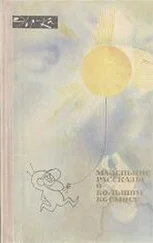She spoke the last words with a gentle reluctance, as if it required almost more energy than she could command to pronounce the faint and lingering syllables. Scarcely had they loitered through her lips ere she was lost in slumber. Aylmer sat by her side, watching her aspect with the emotions proper to a man the whole value of whose existence was involved in the process now to be tested. Mingled with this mood, however, was the philosophic investigation characteristic of the man of science. Not the minutest symptom escaped him. A heightened flush of the cheek, a slight irregularity of breath, a quiver of the eyelid, a hardly perceptible tremor through the frame, – such were the details which, as the moments passed, he wrote down in his folio volume. Intense thought had set its stamp upon every previous page of that volume, but the thoughts of years were all concentrated upon the last.
While thus employed, he failed not to gaze often at the fatal hand, and not without a shudder. Yet once, by a strange and unaccountable impulse he pressed it with his lips. His spirit recoiled, however, in the very act, and Georgiana, out of the midst of her deep sleep, moved uneasily and murmured as if in remonstrance. Again Aylmer resumed his watch. Nor was it without avail. The crimson hand, which at first had been strongly visible upon the marble paleness of Georgiana’s cheek, now grew more faintly outlined. She remained not less pale than ever; but the birthmark with every breath that came and went, lost somewhat of its former distinctness. Its presence had been awful; its departure was more awful still. Watch the stain of the rainbow fading out the sky, and you will know how that mysterious symbol passed away.
‘By Heaven! it is well-nigh gone!’ said Aylmer to himself, in almost irrepressible ecstasy. ‘I can scarcely trace it now. Success! success! And now it is like the faintest rose color. The lightest flush of blood across her cheek would overcome it. But she is so pale!’
He drew aside the window curtain and suffered the light of natural day to fall into the room and rest upon her cheek. At the same time he heard a gross, hoarse chuckle, which he had long known as his servant Aminadab’s expression of delight.
‘Ah, clod! ah, earthly mass!’ cried Aylmer, laughing in a sort of frenzy, ‘you have served me well! Matter and spirit – earth and heaven – have both done their part in this! Laugh, thing of the senses! You have earned the right to laugh.’
These exclamations broke Georgiana’s sleep. She slowly unclosed her eyes and gazed into the mirror which her husband had arranged for that purpose. A faint smile flitted over her lips when she recognized how barely perceptible was now that crimson hand which had once blazed forth with such disastrous brilliancy as to scare away all their happiness. But then her eyes sought Aylmer’s face with a trouble and anxiety that he could by no means account for.
‘My poor Aylmer!’ murmured she.
‘Poor? Nay, richest, happiest, most favored!’ exclaimed he. ‘My peerless bride, it is successful! You are perfect!’
‘My poor Aylmer,’ she repeated, with a more than human tenderness, ‘you have aimed loftily; you have done nobly. Do not repent that with so high and pure a feeling, you have rejected the best the earth could offer. Aylmer, dearest Aylmer, I am dying!’
Alas! it was too true! The fatal hand had grappled with the mystery of life, and was the bond by which an angelic spirit kept itself in union with a mortal frame. As the last crimson tint of the birthmark – that sole token of human imperfection – faded from her cheek, the parting breath of the now perfect woman passed into the atmosphere, and her soul, lingering a moment near her husband, took its heavenward flight. Then a hoarse, chuckling laugh was heard again! Thus ever does the gross fatality of earth exult in its invariable triumph over the immortal essence which, in this dim sphere of half development, demands the completeness of a higher state. Yet, had Aylmer reached a profounder wisdom, he need not thus have flung away the happiness which would have woven his mortal life of the selfsame texture with the celestial. The momentary circumstance was too strong for him; he failed to look beyond the shadowy scope of time, and, living once for all in eternity, to find the perfect future in the present.
The Voice in the Night (William Hope Hodgson)
It was a dark, starless night. We were becalmed in the northern Pacific. Our exact position I do not know; for the sun had been hidden during the course of a weary, breathless week by a thin haze which had seemed to float above us, about the height of our mastheads, at whiles descending and shrouding the surrounding sea.
With there being no wind, we had steadied the tiller, and I was the only man on deck. The crew, consisting of two men and a boy, were sleeping forward in their den, while Will – my friend, and the master of our little craft – was aft in his bunk on the port side of the little cabin.
Suddenly, from out of the surrounding darkness, there came a hail:
‘Schooner, ahoy!’
The cry was so unexpected that I gave no immediate answer, because of my surprise.
It came again – a voice curiously throaty and inhuman, calling from somewhere upon the dark sea away on our port broadside:
‘Schooner, ahoy!’
‘Hullo!’ I sang out, having gathered my wits somewhat. ‘What are you? What do you want?’
‘You need not be afraid,’ answered the queer voice, having probably noticed some trace of confusion in my tone. ‘I am only an old – man.’
The pause sounded odd, but it was only afterward that it came back to me with any significance.
‘Why don’t you come alongside, then?’ I queried somewhat snappishly, for I liked not his hinting at my having been a trifle shaken.
‘I–I – can’t. It wouldn’t be safe. I—’ The voice broke off, and there was silence.
‘What do you mean?’ I asked, growing more and more astonished. ‘What’s not safe? Where are you?’
I listened for a moment, but there came no answer. And then, a sudden indefinite suspicion, of I knew not what, coming to me, I stepped swiftly to the binnacle and took out the lighted lamp. At the same time, I knocked on the deck with my heel to waken Will. Then I was back at the side, throwing the yellow funnel of light out into the silent immensity beyond our rail. As I did so, I heard a slight muffled cry, and then the sound of a splash, as though someone had dipped oars abruptly. Yet I cannot say with certainty that I saw anything; save, it seemed to me, that with the first flash of the light there had been something upon the waters, where now there was nothing.
‘Hullo, there!’ I called. ‘What foolery is this?’
But there came only the indistinct sounds of a boat being pulled away into the night.
Then I heard Will’s voice from the direction of the after scuttle:
‘What’s up, George?’
‘Come here, Will!’ I said.
‘What is it?’ he asked, coming across the deck.
I told him the queer thing that had happened. He put several questions; then, after a moment’s silence, he raised his hands to his lips and hailed:
‘Boat, ahoy!’
From a long distance away there came back to us a faint reply, and my companion repeated his call. Presently, after a short period of silence, there grew on our hearing the muffled sound of oars, at which Will hailed again.
This time there was a reply: ‘Put away the light.’
‘I’m damned if I will,’ I muttered; but Will told me to do as the voice bade, and I shoved it down under the bulwarks.
‘Come nearer,’ he said, and the oar strokes continued. Then, when apparently some half dozen fathoms distant, they again ceased.
Читать дальше
Конец ознакомительного отрывка
Купить книгу












